Our Wa'a (canoes)
Manu O Kū, Noio, 'Iwakeli'i: Sea birds were essential to early Hawaiian navigators. When they spotted these birds at sea, this indicated land. Ocean voyagers used the birds to navigate because they flew to sea in the morning to feed, returning to land at night. Navigators reached land by
going in the direction the birds were coming from in the morning, following them back to land at night.
Pueo: In the rich tapestry of Hawaiian tradition, the short-eared owl holds a special place. Revered as one of the most common 'aumakua to Hawaiians, the Pueo is not just a bird, but a protector. 'Aumakua, believed to be spirits of ancestors, guide and protect their living descendants. The Pueo, with its watchful eyes and silent flight, is our guardian.
Using bird names for all our canoes brings to life the characteristics of our club, our members, and our connection to the Hawaiian culture where outrigger canoe paddling originates. While Manu O Kū, Noio, and 'Iwakeli'i show us the way out and back in safely while on the water, Pueo is our protector. Our wa'a, like the birds they are named after, will protect their paddlers, soar strong and gracefully, and always return home at the end of the day, fostering a deep emotional bond between the canoes and their paddlers.
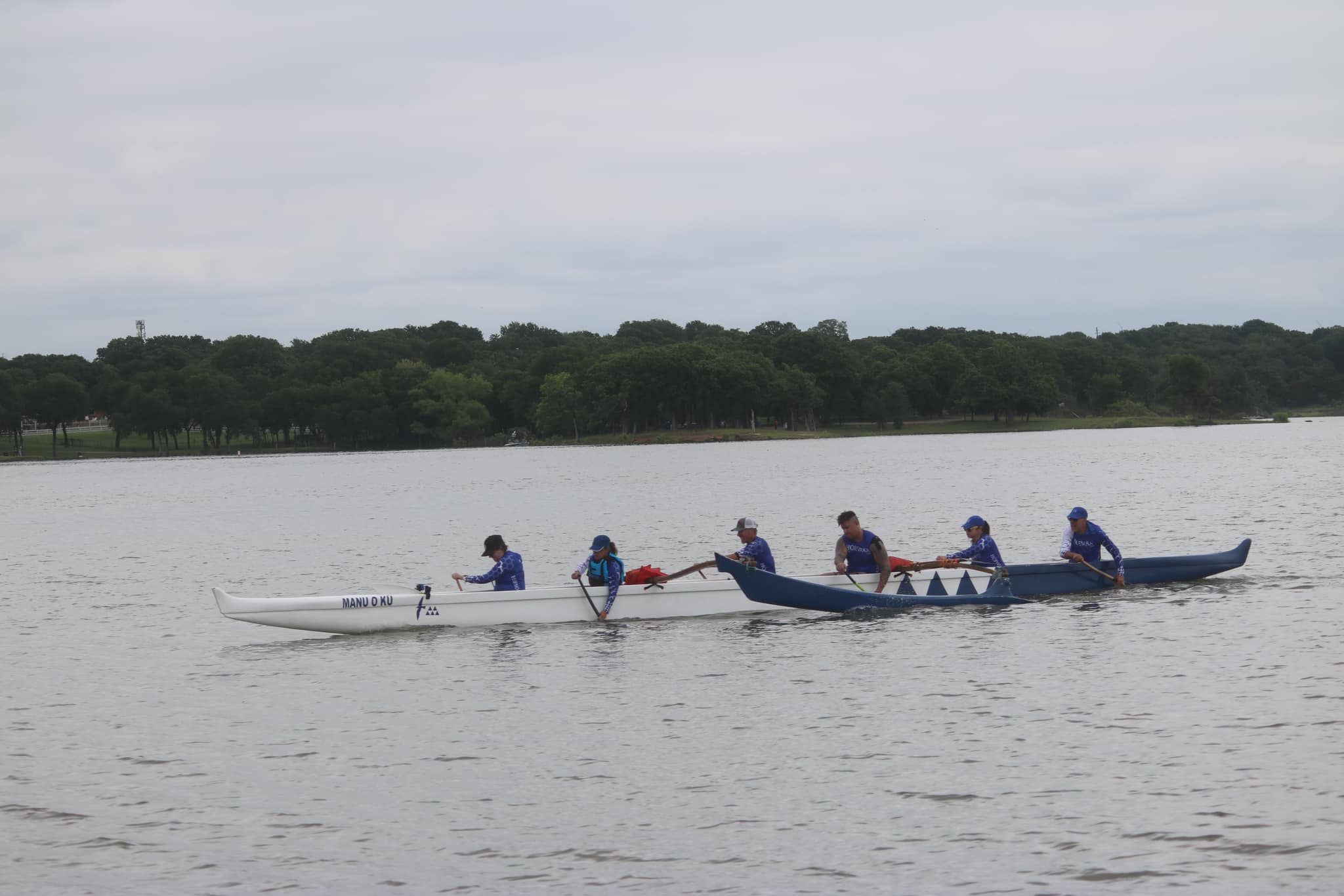
Manu o Kū
“White tern sea bird”
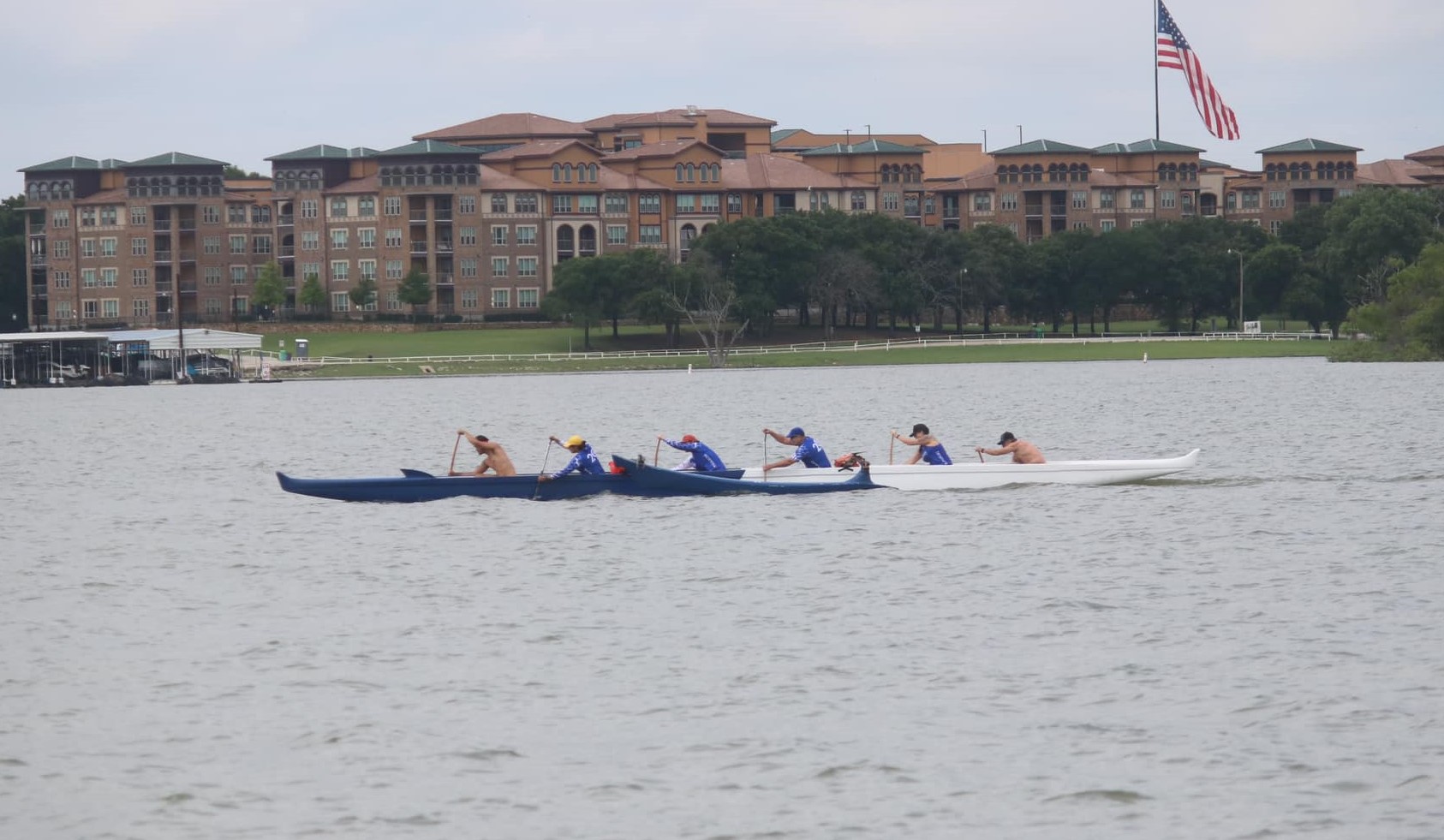
Noio
“Black noddy tern sea bird”

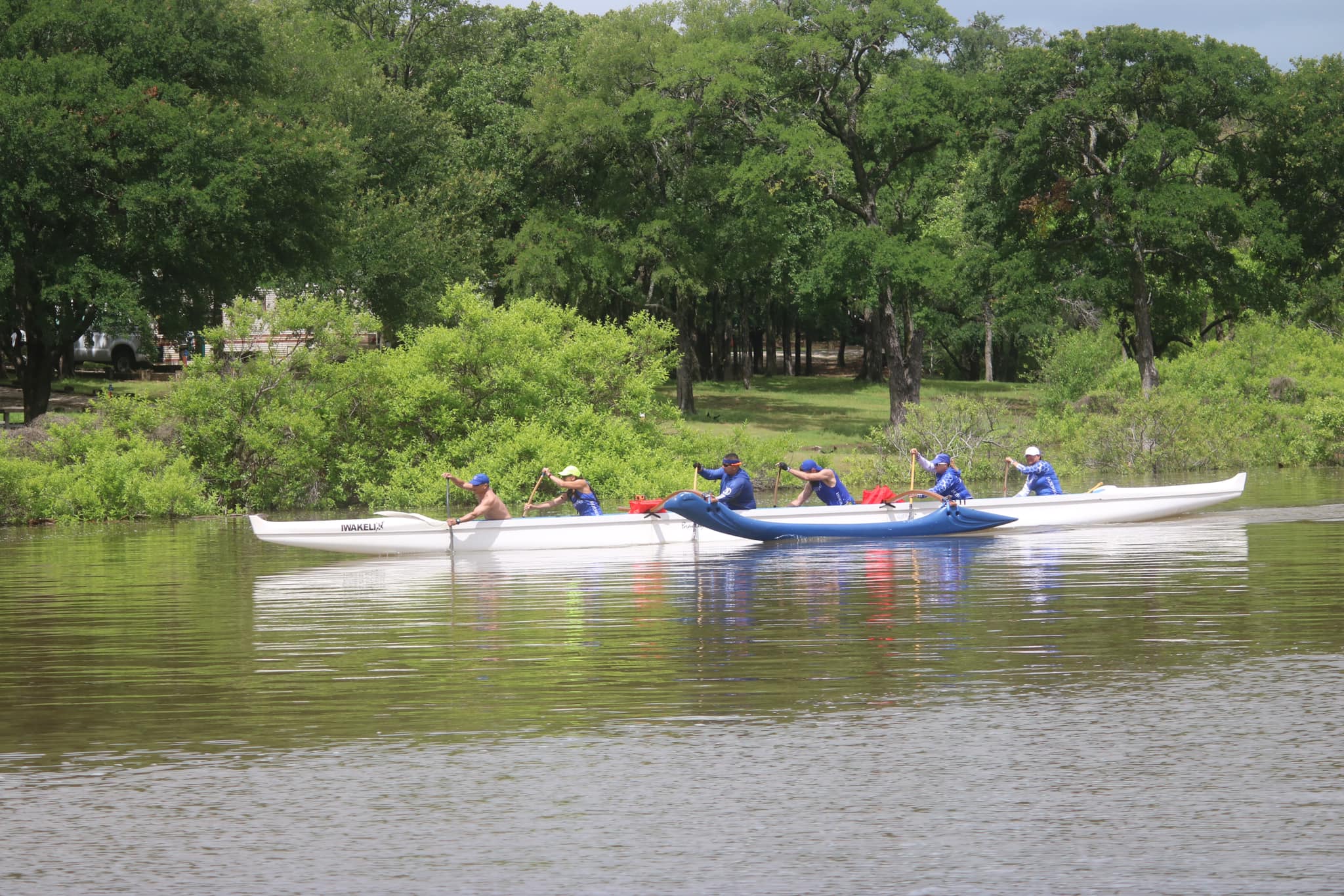
'Iwakeli'i
"Chiefly/noble frigate sea bird"

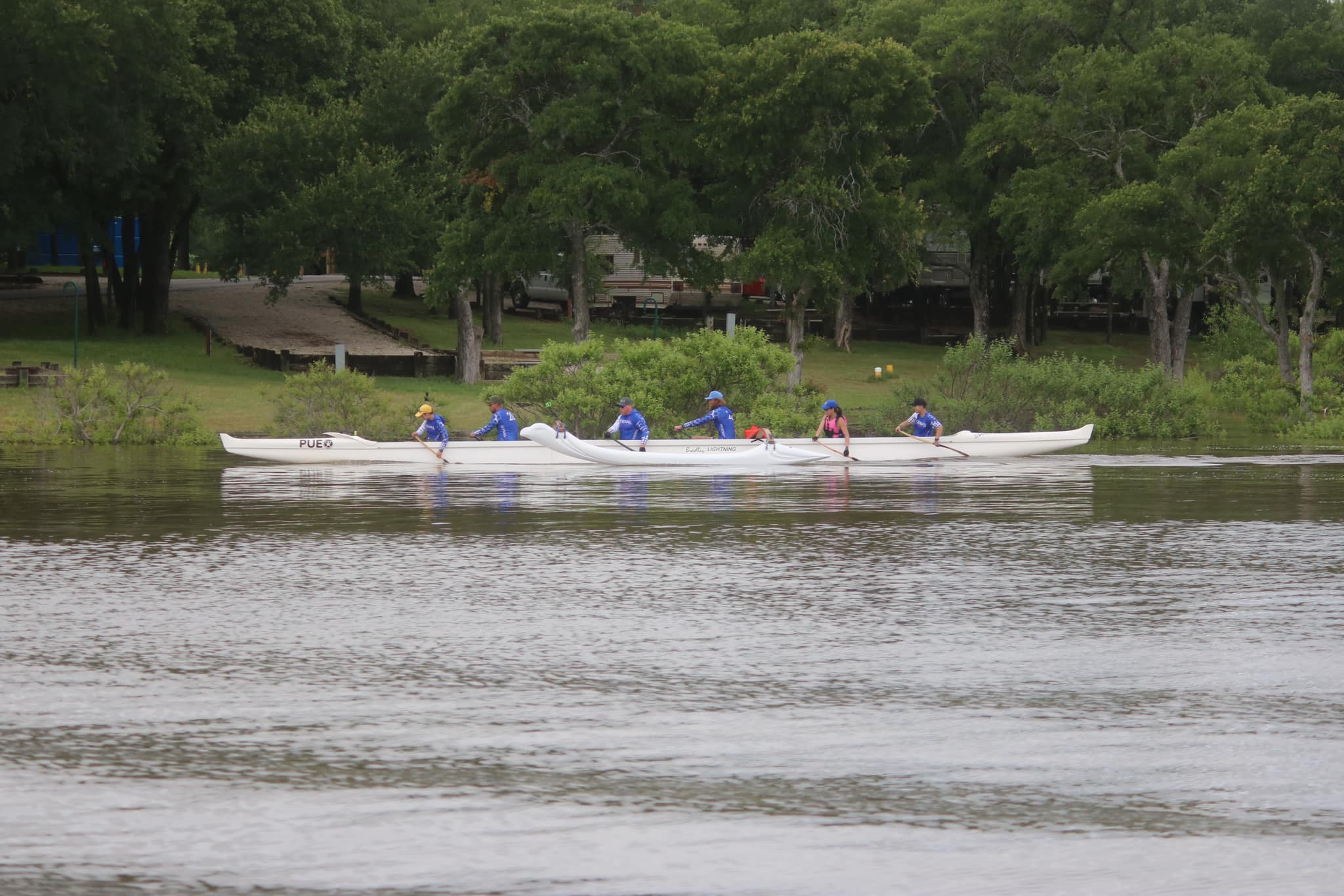
Pueo
“Hawaiian short-eared owl”

Wa'a Protocols
As a paddler, there are some things we need to remember about our canoes. We treat them with respect but also must be pono (right/fair). Be pono not only with the canoe but also with the people we’re paddling with. For the canoe to move forward, we need to work together. All as one. One canoe, one ‘ohana, one team!
-
The canoe represents our elders. Out of respect, we would not drag them over the ground, sit on them, step over them, etc. If using rollers or a dolly to carry into the water, move the canoe carefully and with respect.
-
Keep the canoe and all its parts clean.
-
Don’t leave dirt or debris in the canoe. Bail out the canoe so no water stands in it and remove trash after each practice.
-
Treat the canoe as you would treat yourself or others you love.
-
Always check bailers and rigging before paddling a canoe.
-
Do not play in the canoe, stand on the seats or step over the canoe unless conditions deem it necessary. While on land, do not sit or rest on the iakos or gunnels (on water conditions may deem it necessary to do so).
-
Bring positive actions, feelings, and thoughts into the canoe.
-
Leave any pilikia – trouble - at home. No negative energy or arguing in the canoe.
-
Always have a good attitude. If you don't have something positive to say, don't say anything. It’s important that we have no bad thoughts or feelings when we work on a canoe, touch a canoe or paddle the canoe because these things transfer to the canoe.
-
Be honest in the canoe; do not blame others but look inward at how you can make yourself better which in turn will make the crew better.
-
Be honored to have a seat in the canoe.
-
Own the spirit of Aloha while in the seat.
-
Everyone in canoe should be kūpono - to be forthright, honest, and fair in their relationships with others.
-
If anything goes wrong in the canoe, it's everyone's fault, not just the steersman. In the canoe, we are one ‘ohana, not six.
-
Be maka'ala - alert, aware, vigilant, watchful, wide awake.
-
Know the tides, the currents, the wind, the surrounding environment, and the weather forecast. No sightseeing, be focused on paddling.
-
No yelling out commands, idle chatting, or unnecessary talking while in the canoe. It is fine to voice concerns back to the other paddlers and steersperson, but the steersperson is the ultimate captain of the canoe and is the only one who should be dictating instruction and needs.

Additional general information on Hawaiian canoes can be found here:
Discover an authentic Hawaiian experience by learning about the history of outrigger canoes.
Outrigger Canoeing
Moolelo Hawaii by David Malo. See The Hawaiian Canoe, chapter XXXIV on page 168 for David Malo's description of canoe protocols.
Traditional Hawaiian Canoe-Building
Hawaiian Canoes
Plants and Tools Used for Building Traditional Canoes